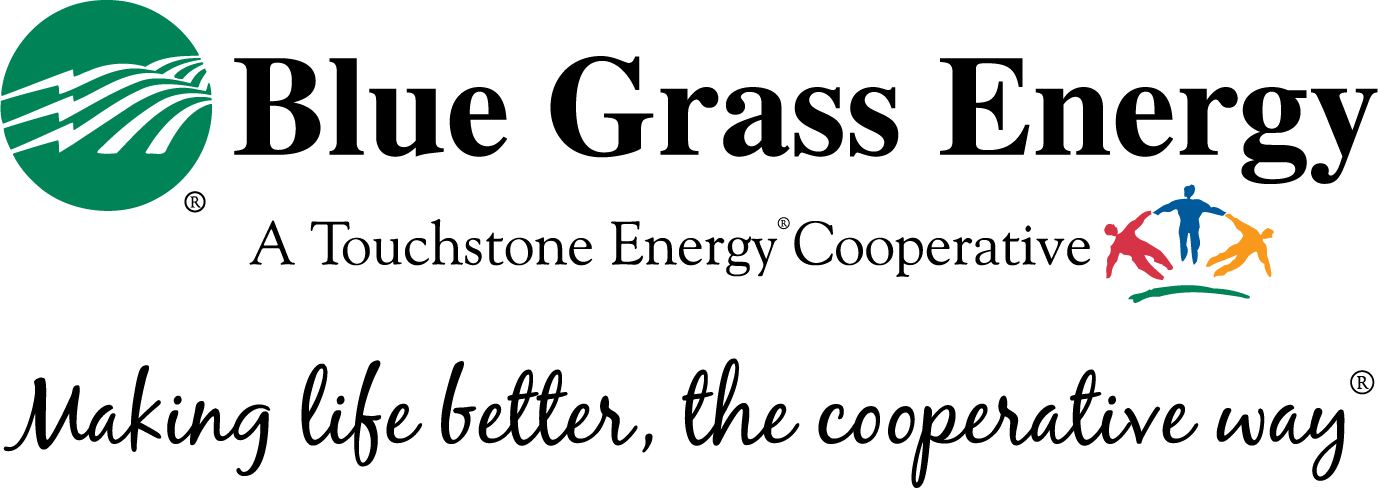Q. What are capital credits?
A. As a cooperative owned by our members, our excess revenues are called margins. Margins are what is left over after all bills are paid at the end of a particular year. In other words, when revenues exceed the cost of doing business.
Q. On the check I received, what particular years is it for?
A. 1992 and 1993
Q. What do we do with capital credits?
A. Other businesses return their profits to stockholders. Cooperatives are different. In our case, profits are reinvested in plant and technology. Periodically, as our directors determine it is financially prudent to do so, we give this money back to our members. Capital Credits are part of the value of our member’s cooperative membership.
Q. How do we decide how much in capital credits each member is allocated?
A. The amount of capital credits is assigned to members based on how much electricity they used during the year the margins were earned, and whether their sales price per KWH was higher than costs per KWH.
Q. Do members earn capital credits every year?
A. No, they do not. Capital credits are only earned and allocated for years in which we earn excess margins. Although, in most years we earn a positive margin.
Q. If capital credits are assigned each year they are earned, where is the money kept until you decide to pay them back to me?
A. The money is used to fund operating expenses, plant improvements and technology. It reduces the need for us to borrow money on your behalf. Even though you didn’t receive the margins as soon as they were earned, it did help you by keeping your cost per kilowatt hour low and helped us save money on interest from borrowed money.
Fluctuating fuel prices and weather events can affect margins. When these extenuating circumstances occur, capital credit payments may be delayed.
Q. Can you put my credit toward my account? I don’t want a check.
A. No, all credits over $5 are currently issued as a check.
Q. Are you paying me interest on my allotment of capital credits?
A. No. Instead, that money was to benefit members by helping keep rates as low as possible. This has allowed our rates to be competitive with surrounding utilities.
Q. Why don’t you pay capital credits every year?
A. Each year, the board and management examine our financial stability, including what we need for things like wholesale power, poles, wire, and equipment. We want to meet certain financial goals before returning capital credits.
Fluctuating fuel prices and weather events can affect margins. When these extenuating circumstances occur, capital credit payments may be delayed. Because we have controlled our expenses, we are able to return capital credits at this time.
Q. What if I move off of BGEnergy before you pay the capital credits I earned?
A. The money allocated to you will be sent when it is paid. That is why it is important we have a good forwarding address so you can be reached after having left our service. We will attempt to locate you but if unsuccessful, we will hold your credits until we hear from you.
Q. What if I die before you pay my capital credits?
A. Your capital credits will be paid to your estate upon your death. Your executor must bring the proper documents (death certificate and court order appointing executor or administrator) to our office to claim your credits.
Q. Are capital credits taxable?
A. Check with your accountant, but generally, unless you deducted the cost of electricity on your tax returns this check is treated as a reduction of those costs, this is non-taxable. For businesses, the amount is generally taxable.
Q. What if the check is made payable to a deceased person or an estate?
A. There are several ways to address this. If the estate is still open, we can make the check payable to the estate. You can also apply for the total capital credit balance to be refunded to the estate on a discounted basis. This request goes to the board and is voted on at its monthly meeting. If the estate is not open, or the check cannot be cashed as made payable to the estate, you can produce information that identifies you as the rightful heir and we will issue the check in your name.
Q. What kind of proof do I need that I am the heir?
A. A copy of the will naming you as executor or a court document naming you as administrator and a copy of the death certificate. In some cases (generally smaller amounts) we can accept obituaries naming next of kin, letters from other potential heirs, etc. Each case may be different. You may be asked to indemnify (pay back) the funds if it is later determined that you were not the proper heir.
